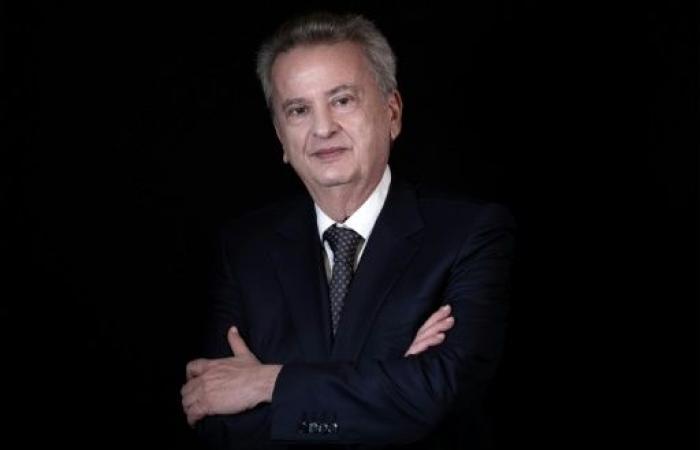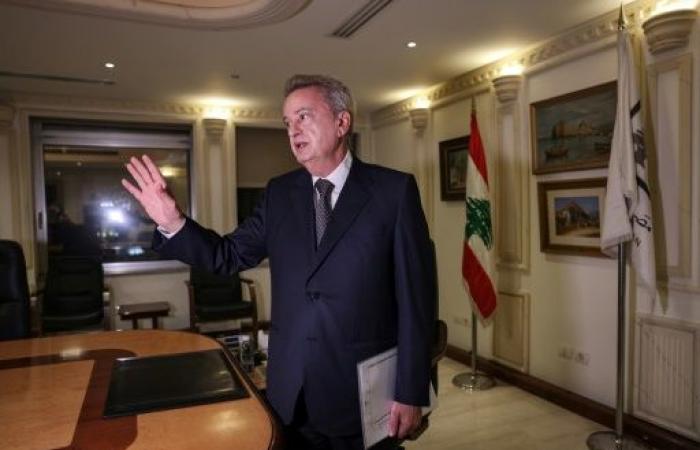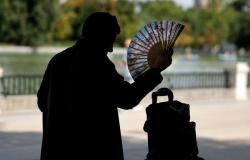Architect of Lebanon’s recovery after the war before being accused of being one of the main people responsible for its economic collapse, the former governor of the Banque du Liban (BDL), Riad Salamé, was arrested Tuesday in Beirut.
This is the first time he has appeared in court since his term expired on July 31, 2023. Mr. Salamé, 74, had kept a low profile and had only appeared in public in late 2023 for the funeral of one of his brothers.
He is suspected of massive embezzlement of Lebanese public funds and of having built up a rich real estate and banking portfolio in Europe via a complex financial scheme, with the help of his relatives.
But he denies any financial wrongdoing and claims to be a convenient “scapegoat” for the political class to which he was closely linked.
Mr Salamé was arrested after being questioned by the attorney general “on suspicions of embezzlement of BDL funds exceeding 40 million dollars” (around 36 million euros), according to a judicial source.
The former head of the BDL has also been the subject of an international arrest warrant since he failed to respond to a summons from a French judge in May 2023. And Lebanon refuses to extradite its nationals.
The French justice system has carried out 12 seizures of his real estate and banking assets, worth several tens of millions of euros.
His brother Raja was also indicted in early August in France as part of investigations carried out in Paris into suspicions of ill-gotten Lebanese assets.
The German justice system, for its part, cancelled an arrest warrant against Mr Salamé last June, without however completing the investigation against him.
– Prosperous years
| © AFP/Archives File photo of former Central Bank of Lebanon governor Riad Salamé posing during an interview with AFP in Beirut, December 20, 2021 |
The United States, Canada and the United Kingdom have imposed economic sanctions against him for corruption, with Washington saying his “corrupt and illegal actions contributed to the collapse of the rule of law in Lebanon.”
Riad Salamé, who holds one of the records for longevity at the head of a central bank (1993-2023), has nevertheless been applauded for having been the architect of a financial policy that allowed Lebanon to bounce back after 15 years of civil war (1975-1990).
But with the country’s descent into hell since the end of 2019, many hold him and political leaders responsible for Lebanon’s economic failure.
The governor defends himself and repeats that he amassed his fortune while working at the American investment bank Merril Lynch, where he managed the asset portfolio of billionaire Rafic Hariri, who made his fortune in Saudi Arabia.
Having become Prime Minister in 1992, Rafic Hariri – assassinated in 2005 – installed Riad Salamé at the head of the Central Bank, a post reserved for the Maronite Christian community by virtue of the confessional sharing of power in Lebanon.
He then fixed the exchange rate of the Lebanese pound against the dollar. The boom years began for Lebanon, which attracted capital, notably thanks to very high interest rates.
Riad Salamé has accumulated laurels: he was named best central bank governor in the world by Euromoney in 2006 and by Banker Magazine in 2009.
“Flight forward”
But with the war that broke out in Syria in 2011, “red signals” are accumulating for the Lebanese economy, explains economist Nicolas Chikhani.
Instead of restructuring the economy and abandoning his policies which are starting to cost Lebanon dearly, Mr. Salamé is choosing “to flee forward,” he explains.
| © AFP/Archives File photo of former Central Bank of Lebanon governor Riad Salamé posing during an interview with AFP in Beirut, December 20, 2021 |
In 2016, he launched into financial schemes compared to a “Ponzi pyramid”, and at the end of 2019, the collapse began which caused the Lebanese pound to lose more than 98% of its value.
While savers no longer had access to their money in banks, he helped political leaders transfer their capital abroad in October 2019, just before the collapse, “for a total of nine billion dollars”, according to a financial market specialist.
He explains that Mr Salamé had presidential ambitions: “He refused nothing to the political class” and “protected the banks, whose main shareholders are politicians”.







